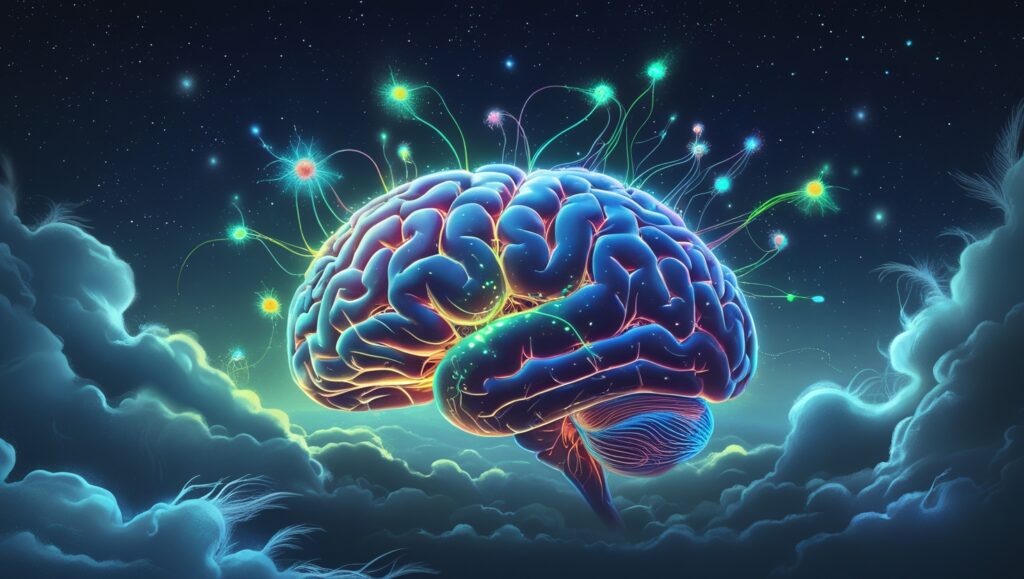How Does Sleep Help Mental Health ?
Table of Contents
The Crucial Role of Sleep in Mental Health: A Deep Dive
Introduction
In the intricate tapestry of human health, sleep often serves as the invisible thread that interconnects physical well-being with mental resilience. While its importance is frequently underestimated, sleep is fundamental to our overall mental health, influencing mood regulation, cognitive function, emotional stability, and psychological resilience. This comprehensive article seeks to illuminate the profound ways in which sleep acts as a cornerstone of mental health, exploring the underlying mechanisms, impacts of sleep deficiency, and practical strategies to harness its therapeutic potential.
Understanding the Basics of Sleep
To fully grasp the role of sleep in mental health, it’s essential first to understand what sleep is and why it matters. Sleep isn’t merely a period of inactivity; it is a complex, dynamic process crucial for brain function and systemic health.
The Sleep Cycle

The human sleep cycle comprises two main phases: Non-Rapid Eye Movement (NREM) and Rapid Eye Movement (REM) sleep. Each phase plays a distinct role:
- NREM Sleep: Divided into three stages, NREM sleep begins with light sleep and progresses to deep sleep. It is during slow-wave sleep, a stage of deep NREM, that the body undergoes physical restoration and cellular repair. This phase is critical for memory consolidation and cognitive maintenance.
- REM Sleep: REM sleep is when dreaming typically occurs and is characterized by heightened brain activity. This stage is crucial for emotional processing, memory consolidation, and creative problem-solving.
The cyclical pattern of transitioning between NREM and REM sleep constitutes our sleep architecture, which is vital for optimal health.
The Psychological Impact of Sleep on Mental Health
The interplay between sleep and mental health is profound. Adequate sleep promotes mental stability by facilitating several psychological processes that support emotional and cognitive health.
Emotional Regulation

Sleep plays a pivotal role in managing emotions. During REM sleep, the brain processes emotional experiences, allowing individuals to retain emotional balance. Lack of sleep can lead to heightened emotional reactivity, increased irritability, and difficulty managing stress. Studies consistently show that well-rested individuals have better emotional control and resilience, attributes that are critical in mitigating the symptoms of anxiety and depression.
Cognitive Function
Cognitive functions such as attention, memory, executive function, and decision-making are all significantly influenced by sleep. The prefrontal cortex, responsible for these higher-order cognitive processes, benefits enormously from the restorative sleep patterns facilitated through NREM and REM stages. Inadequate sleep hampers the ability to concentrate, impairs judgment, and reduces the capacity to solve complex problems.
Mental Illness Prevention
A robust body of research links poor sleep quality and quantity with a heightened risk of developing mental health disorders. Consistent, restful sleep demonstrates protective effects against conditions such as depression, anxiety, and bipolar disorder. Preventive sleep patterns help maintain psychological balance, enhancing an individual’s ability to cope with stressors and reducing vulnerability to mental illness onset.
The Consequences of Sleep Deprivation
Lack of sleep, whether chronic or acute, has far-reaching implications for mental health. Understanding these consequences underscores the importance of prioritizing sleep in mental health strategies.
Psychological Stress and Disorder
Sleep deprivation is both a symptom and a catalyst for psychological stress and disorder. Insufficient sleep exacerbates symptoms of preexisting mental conditions and can trigger the development of new symptoms. For instance, insomnia frequently precedes depressive episodes and intensifies anxiety. The bidirectional relationship between sleep and mental health is evident; good mental health promotes better sleep, and good sleep enhances mental health.
Emotional Instability and Cognitive Impairment
Chronic sleep deprivation leads to pronounced emotional instability, manifesting as mood swings, irritability, and diminished empathy. It also impairs cognitive abilities, evident through concentration lapses, impaired judgment, and memory deficits. This cognitive decline not only affects daily functioning but can also exacerbate psychological disturbances.
Biological Mechanisms: How Sleep Supports Mental Health
Sleep exerts its beneficial effects on mental health through a host of biological mechanisms that regulate brain activity and systemic functions.

Neurotransmitter Regulation
Sleep is vital for regulating neurotransmitters, which play key roles in mood and cognition. Neurotransmitters like serotonin, norepinephrine, and dopamine, crucial for emotional regulation and motivation, are modulated during restorative sleep cycles. Disruptions in sleep can lead to imbalances in these neurotransmitters, contributing to the development of mood disorders.
Hormonal Balance
Sleep affects the regulation of hormones such as cortisol, the stress hormone, which follows a diurnal rhythm influenced by sleep patterns. Poor sleep increases cortisol levels, leading to heightened stress and anxiety. Adequate sleep helps maintain hormonal balance, promoting emotional stability and reducing stress.
Brain Plasticity and Stress Response
Sleep supports neuroplasticity—the brain’s ability to reorganize and form new connections—essential for learning and adaptation. REM sleep, in particular, facilitates the brain’s stress response system by moderating the Hypothalamic-Pituitary-Adrenal (HPA) axis, which is responsible for managing stress responses. Well-regulated HPA activity is fundamental for mental health, preventing chronic stress and its adverse psychological effects.
Practical Strategies for Enhancing Sleep Quality
Improving sleep quality can lead to significant improvements in mental health. Here are some strategies grounded in scientific research and clinical practice.
Establishing Sleep Hygiene
Sleep hygiene refers to habits that promote consistent, uninterrupted sleep. Key best practices include:
- Consistent Sleep Schedule: Going to bed and waking up at the same time every day, even on weekends, helps regulate the body’s internal clock.
- Optimal Sleep Environment: Creating a conducive sleep environment involves a quiet, dark, and cool bedroom. Using blackout curtains, earplugs, or white noise machines can aid in minimizing disturbances.
- Limiting Screen Time: Blue light emitted from smartphones, tablets, and computers can interfere with melatonin production. Establish an electronics curfew at least an hour before bedtime to improve sleep quality.
Addressing Sleep Disorders
Chronic sleep issues such as insomnia, sleep apnea, and restless leg syndrome require professional evaluation and treatment. Cognitive Behavioral Therapy for Insomnia (CBT-I) is a highly effective treatment approach that focuses on changing sleep habits and addressing misconceptions about sleep.
Lifestyle Modifications
Adopting a healthy lifestyle can significantly impact sleep quality. Routine physical activity, balanced nutrition, and stress management techniques like mindfulness and meditation can foster better sleep patterns and improve mental health.
Sleep Tracking and Monitoring
Utilizing technology, such as sleep trackers and apps, can provide valuable insights into sleep patterns, enabling individuals to make informed adjustments to their routines. However, it’s important to balance technology use with its potential to disrupt sleep.
Integrating Sleep into Mental Health Treatment Plans
Recognizing the interdependence between sleep and mental health, integrating sleep-focused strategies into mental health treatment plans can enhance therapeutic outcomes.

Collaborative Care Approach
A collaborative approach involving mental health professionals, sleep specialists, and primary care providers can ensure comprehensive care for individuals experiencing sleep-related mental health issues.
Education and Awareness
Educating patients about the critical relationship between sleep and mental health empowers them to take proactive steps in managing their well-being. Understanding the importance of sleep can motivate adherence to healthier sleep practices and increase engagement in therapeutic interventions.
Holistic Treatment Models
Holistic treatment models that address both mental health symptoms and sleep disorders holistically can lead to more sustainable improvements in patient outcomes. Such models may incorporate psychotherapy, medication management, lifestyle coaching, and sleep hygiene education.
Future Directions in Sleep and Mental Health Research
As research into the sleep-mental health nexus continues to evolve, future studies can provide deeper insights into the mechanisms underlying this complex relationship.
Genetic and Epigenetic Factors
Exploring genetic and epigenetic factors associated with sleep and mental health can illuminate individual vulnerabilities and protective factors. Understanding these biological predispositions can lead to personalized treatment strategies.
Technological Advancements
Advancements in sleep technology, such as more accessible and sophisticated sleep tracking devices, have the potential to revolutionize how individuals monitor and improve their sleep. Developments in virtual reality and biofeedback technologies may also offer innovative therapeutic avenues for improving sleep and mental health.
Policy and Public Health Initiatives
Public health initiatives that promote sleep education and address societal factors contributing to sleep deprivation—such as work schedules and light pollution—can play a crucial role in improving population-wide sleep health.
Conclusion
In conclusion, sleep is a foundational element of mental health, influencing emotional regulation, cognitive function, and overall psychological resilience. The dynamic interplay between sleep and mental health underscores the importance of prioritizing sleep in mental health strategies. By understanding the mechanisms through which sleep supports mental health and implementing practical strategies to enhance sleep quality, individuals and mental health professionals can foster healthier, more balanced lives. As research continues to unravel the complexities of this relationship, the integration of sleep-focused approaches into mental health care will undoubtedly lead to more effective and holistic treatment outcomes. Prioritizing sleep is not just a health essential; it is a critical societal investment in mental well-being and resilience.







